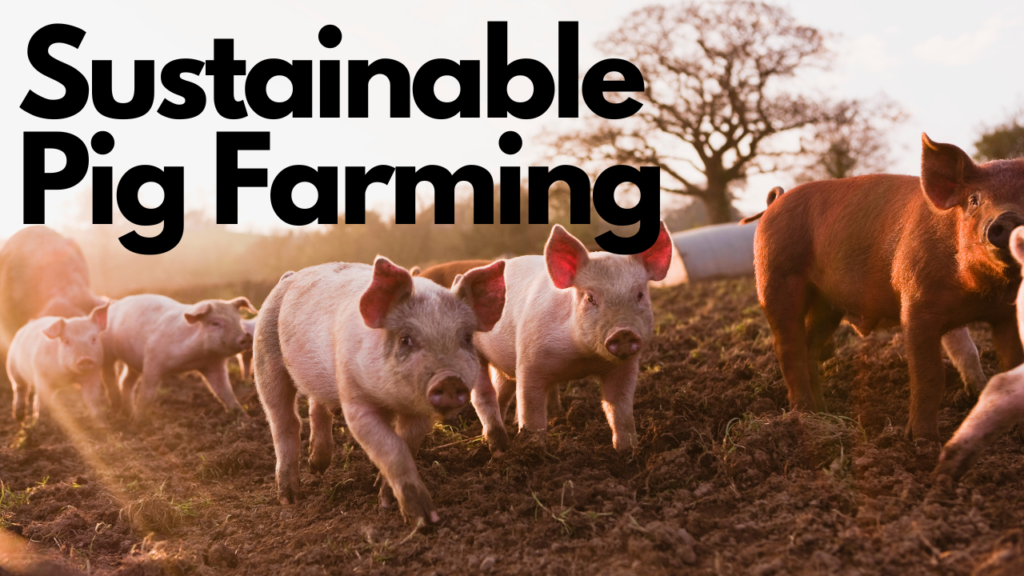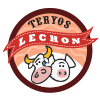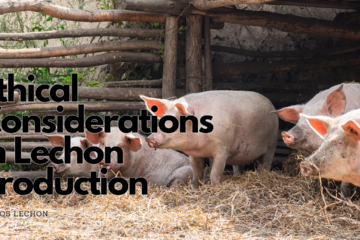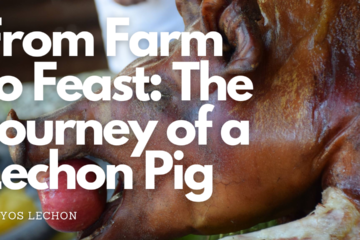Lechon, the succulent whole roasted pig that takes center stage at Filipino celebrations, has long been a symbol of festivity and abundance. However, as global concerns about sustainability and environmental impact grow, it’s time to explore how this beloved culinary tradition can adapt to meet modern eco-friendly standards. Enter sustainable lechon farming – a practice that promises to deliver the same mouth-watering flavors while prioritizing animal welfare, environmental stewardship, and economic viability.

The Rise of Sustainable Pig Farming
In recent years, the concept of sustainable agriculture has gained traction across various sectors, and pig farming is no exception. Sustainable lechon farming goes beyond simply raising pigs for roasting; it encompasses a holistic approach that considers the entire lifecycle of pork production, from breeding to processing.
Key Components of Sustainable Lechon Farming
- Ethical Breeding and Rearing
Sustainable lechon farms prioritize the well-being of their pigs from day one. This begins with selecting breeds that are well-suited to local conditions and have good health characteristics. Native pig breeds, such as the Philippine native black pig, are often favored for their hardiness and adaptability to tropical climates.
Ethical rearing practices include:
- Providing ample space for pigs to move and express natural behaviors
- Implementing stress-reduction techniques to promote animal welfare
- Using natural bedding materials like rice hulls or coconut husks
- Avoiding the use of growth hormones and unnecessary antibiotics
- Sustainable Feed Solutions
One of the biggest challenges in conventional pig farming is the reliance on imported feed, which can be both expensive and environmentally taxing. Sustainable lechon farms are exploring innovative feed solutions that leverage local resources and reduce waste.
Some sustainable feed strategies include:
- Utilizing food waste from restaurants and markets as pig feed
- Growing fodder crops on-site to supplement commercial feed
- Incorporating indigenous plants and herbs into pig diets for added nutrition and flavor
- Implementing precision feeding techniques to minimize waste and optimize nutrition
- Waste Management and Circular Economy
Proper waste management is crucial in sustainable lechon farming. Instead of viewing pig manure as a problem, forward-thinking farmers are turning it into an opportunity for additional income and environmental benefit.
Innovative waste management practices include:
- Biogas production from pig manure, providing renewable energy for farm operations
- Composting waste to create organic fertilizers for crop production
- Vermiculture systems that use worms to process waste and create nutrient-rich soil amendments
- Algae cultivation using nutrient-rich wastewater, which can then be used as pig feed or biofuel
- Water Conservation and Management
Water is a precious resource, and sustainable lechon farms are implementing measures to reduce consumption and prevent pollution. This not only helps the environment but also lowers operational costs.
Water-saving techniques include:
- Rainwater harvesting systems for cleaning and irrigation
- Drip irrigation for fodder crop production
- Greywater recycling for non-potable uses
- Constructed wetlands for natural wastewater treatment
- Integrated Farming Systems
Many sustainable lechon farms are adopting integrated farming approaches, where pig raising is just one part of a diverse agricultural ecosystem. This method, often called “integrated livestock-crop farming,” maximizes resource efficiency and creates multiple income streams.
Examples of integrated farming practices include:
- Raising ducks or chickens alongside pigs to control pests and provide additional income
- Growing fruit trees or vegetables that can benefit from pig manure fertilization
- Implementing aquaculture systems that utilize nutrient-rich water from pig operations
The Benefits of Sustainable Lechon Farming
- Improved Meat Quality
Pigs raised in sustainable systems often produce higher-quality meat. The reduced stress, natural diets, and increased movement contribute to better muscle development and fat distribution, resulting in more flavorful and tender lechon.
- Environmental Protection
By implementing eco-friendly practices, sustainable lechon farms significantly reduce their environmental footprint. This includes lower greenhouse gas emissions, reduced water pollution, and improved soil health.
- Economic Resilience
Diversifying income streams and reducing reliance on external inputs makes sustainable lechon farms more economically resilient. This is particularly important for small-scale farmers who may be vulnerable to market fluctuations.
- Community Benefits
Sustainable lechon farming can have positive ripple effects throughout local communities. It creates job opportunities, supports local food security, and helps preserve traditional farming knowledge.
- Consumer Appeal
As awareness of sustainability issues grows, consumers are increasingly seeking out ethically produced food. Sustainable lechon can command premium prices and tap into niche markets, benefiting both farmers and conscious consumers.
Challenges and Future Directions
While sustainable lechon farming offers numerous benefits, it’s not without challenges. Some hurdles include:
- Higher initial investment costs for sustainable infrastructure
- Need for specialized knowledge and training
- Potential resistance to change from traditional farming practices
- Lack of established supply chains for sustainably produced pork
However, as the demand for sustainable food options continues to grow, these challenges are likely to be addressed through innovation, policy support, and consumer education.
Future directions for sustainable lechon farming may include:
- Development of specialized “lechon pig” breeds that thrive in sustainable systems
- Integration of smart farming technologies for precision management
- Establishment of sustainability certification programs for lechon producers
- Expansion of farm-to-table initiatives connecting sustainable farms directly with consumers
Sustainable Lechon: A Taste of Tradition with a Future-Forward Twist
As we look to the future of Filipino cuisine and agriculture, sustainable lechon farming emerges as a promising solution that honors tradition while embracing innovation. By adopting eco-friendly practices, farmers can produce the succulent roasted pigs that have long been a cornerstone of Filipino celebrations, all while safeguarding the environment and supporting local communities.
For consumers, choosing sustainably produced lechon means indulging in a culinary delight that not only tantalizes the taste buds but also nourishes the conscience. It’s a way to celebrate life’s special moments while contributing to a more sustainable food system.
As awareness grows and more farmers adopt these practices, we can look forward to a future where every bite of crispy lechon skin and juicy meat carries with it the satisfaction of supporting a more sustainable world. So the next time you’re planning a fiesta or simply craving that irresistible taste of roasted pig, consider seeking out sustainably farmed lechon – it’s a choice that’s good for your palate, good for farmers, and good for the planet.
In conclusion, sustainable lechon farming represents a delicious intersection of tradition and innovation. By embracing ethical breeding, eco-friendly feed solutions, waste management, water conservation, and integrated farming systems, we can ensure that this beloved Filipino dish continues to bring joy to gatherings for generations to come – all while contributing to a more sustainable and resilient agricultural future.




0 Comments